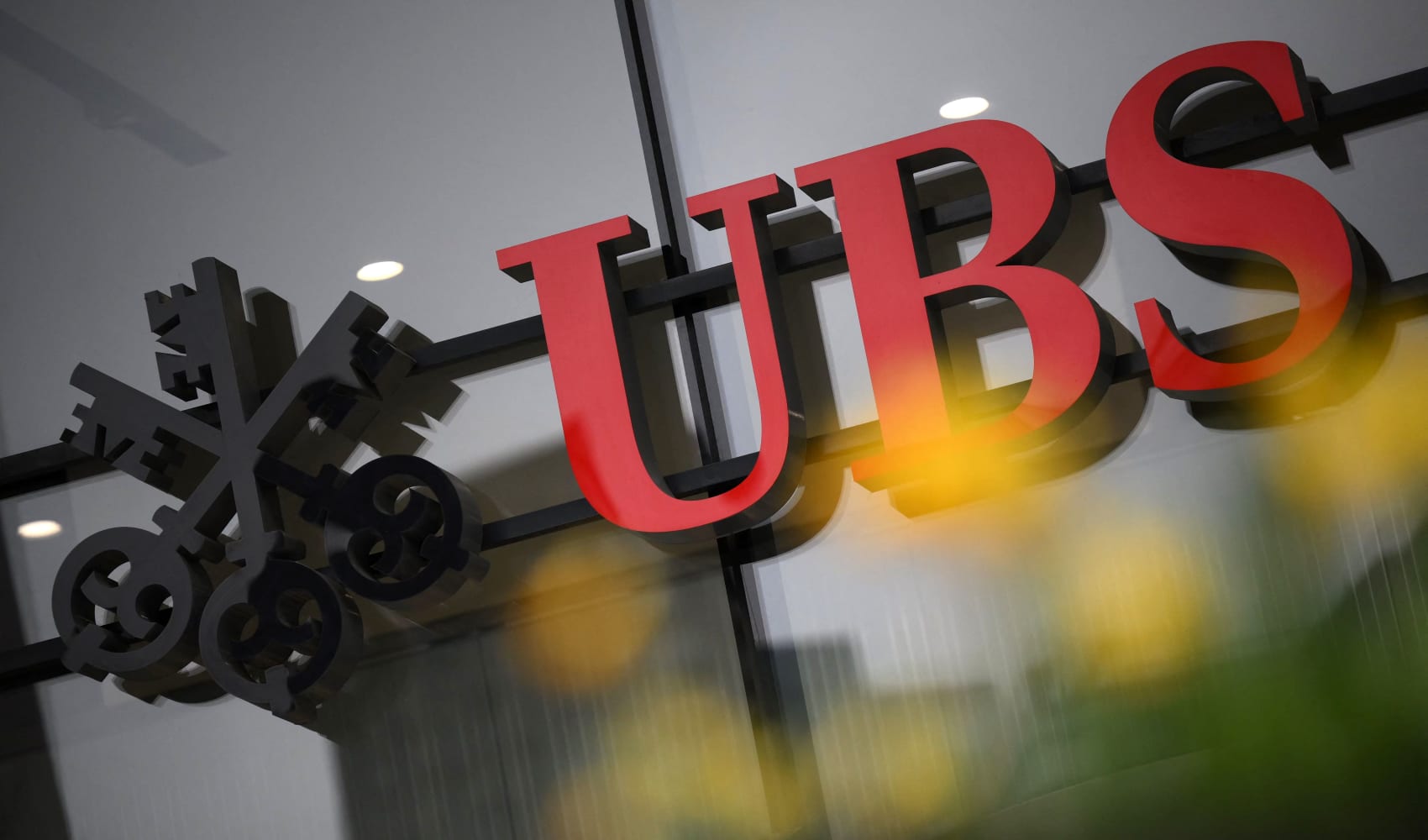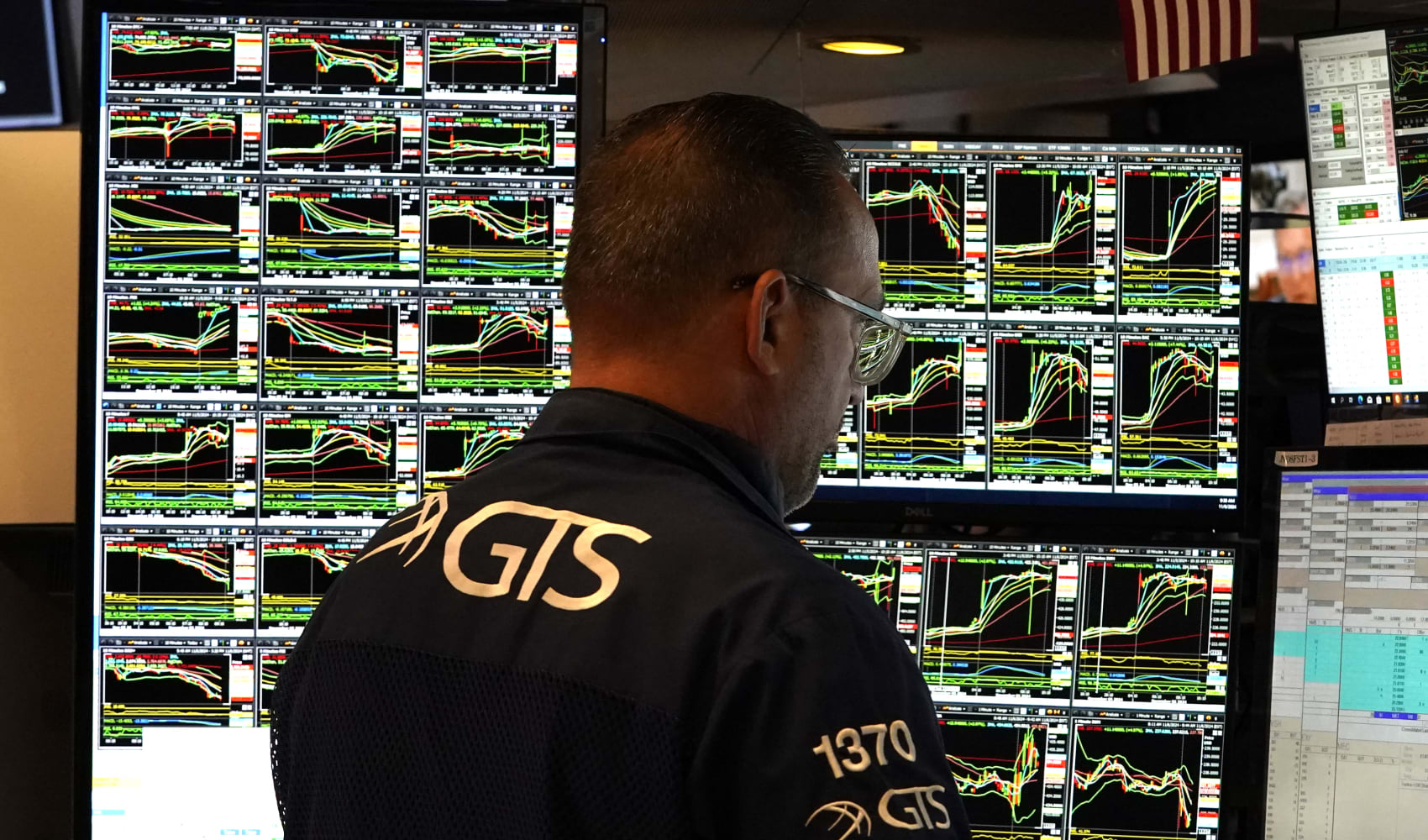UBS Profit Beat: Trump Tariffs Cloud the Horizon
UBS Defies Headwinds: Profit Soars Despite Looming Trump Tariff Threat
Introduction: A Tale of Two Forces
Hold onto your hats, folks! The financial world is never short on surprises, and UBS, the Swiss banking giant, has delivered a mixed bag. They’ve just posted a profit beat that’s got everyone talking, showing resilience in the face of global economic uncertainty. But lurking in the shadows is a “material risk” – the potential impact of Trump’s tariffs, casting a long shadow over their otherwise bright outlook. It’s like celebrating a sunny day with a hurricane on the horizon – exciting and a little bit unnerving.
Investment Banking Fuels the Fire
Let's dive into the numbers that are making headlines. UBS's investment banking arm is the star of the show, driving the profit surge. Think of it as the engine room of a ship, powering the whole vessel forward. Their results are definitely making waves.
Global Markets Unit Soars
The global markets unit saw a staggering 32% year-on-year hike in revenues! That's not a typo. This massive increase was "largely driven by higher client activity in equities and FX with gains across all regions." In other words, more clients were trading stocks and foreign exchange, and UBS made a tidy profit in the process. It's like finding a gold mine in your backyard – unexpected and incredibly valuable.
Equities and FX: The Winning Combination
The secret sauce? Equities and FX. These two areas proved to be particularly lucrative for UBS. Think of equities as betting on the future of companies, and FX as playing the currency market. When both are booming, banks like UBS reap the rewards.
Navigating the Monetary Easing Landscape
Investors are keeping a close eye on these metrics, especially as European banks navigate the changing waters of monetary easing. But what does that even mean? It's essentially the central banks trying to stimulate the economy by making it cheaper to borrow money. Imagine it like a financial tap that's being turned on, encouraging businesses and individuals to spend. For banks, it's a delicate balancing act – managing risk while capitalizing on new opportunities.
The Headline Numbers: Profit vs. Revenue
Let's break down the raw data. It's like looking at the ingredients in a recipe – each one tells a part of the story.
Net Profit Attributable to Shareholders: A Victory
Net profit attributable to shareholders hit $1.692 billion in the first quarter. That significantly exceeded the mean forecast of $1.359 billion from a LSEG poll of analysts. Beating expectations by that margin is like hitting a home run in the bottom of the ninth – a real cause for celebration.
Group Revenue: Slightly Below Expectations
However, group revenue stood at $12.557 billion, slightly below analyst expectations of $12.99 billion. While still a substantial number, it highlights that while profitability is strong, overall business volume could be higher. It's like winning the battle but not quite winning the war.
The Trump Tariff Threat: A "Material Risk"
Now for the elephant in the room: the "material risk" posed by potential tariffs imposed by the Trump administration. These tariffs are like storm clouds gathering on the horizon, threatening to disrupt global trade and economic growth.
What Makes it a "Material Risk"?
Why is UBS so concerned? Tariffs can impact businesses in several ways. They increase the cost of goods, disrupt supply chains, and create uncertainty in the market. This uncertainty can lead to decreased investment and slower economic growth, ultimately impacting bank profits.
Global Trade in the Crosshairs
The fear is that these tariffs could trigger a trade war, impacting businesses across the globe. Imagine a game of dominoes – one tariff leads to another, leading to a global economic slowdown. It's a scenario that keeps economists and bankers up at night.
Reining in Share Declines: Damage Control?
UBS is seeking to rein in steep share declines, a signal that they're taking the tariff threat seriously. It's like putting sandbags in place before a flood – preparing for the worst while hoping for the best.
Strategies for Mitigation
How do they plan to do this? It likely involves diversifying their investments, focusing on regions less affected by the tariffs, and managing their risk exposure. It's like a sailor navigating a stormy sea – adjusting course to avoid the roughest waters.
Investor Confidence: A Key Challenge
Maintaining investor confidence is crucial during times of uncertainty. Clear communication and transparency are key to reassuring investors that the bank is prepared to weather the storm. Think of it like a pilot reassuring passengers during turbulence – keeping everyone calm and informed.
Looking Ahead: The Balancing Act
So, what's the takeaway? UBS has delivered a strong performance, but the future is uncertain. They are walking a tightrope, balancing impressive profits with the looming threat of trade wars. It's a challenging situation, but one that UBS seems determined to navigate successfully.
Geopolitical Factors: A Constant Variable
In today's interconnected world, banks are increasingly exposed to geopolitical events that can swiftly impact their performance. The Trump tariffs are just one example. Other factors such as political instability, sanctions, and international conflicts can also significantly affect financial institutions.
Risk Management in a Volatile World
For banks, robust risk management practices are more important than ever. They must be able to anticipate, assess, and mitigate geopolitical risks effectively. This involves investing in sophisticated analytical tools, developing contingency plans, and maintaining close communication with regulators and stakeholders.
Conclusion: A Cautiously Optimistic Outlook
In conclusion, UBS's recent profit beat demonstrates their resilience and strength in investment banking. However, the "material risk" posed by potential Trump tariffs cannot be ignored. The bank is actively seeking to mitigate these risks and maintain investor confidence. The road ahead may be bumpy, but UBS is positioned to weather the storm, albeit with a degree of cautious optimism.
Frequently Asked Questions
- Q: What are Trump tariffs, and why are they considered a "material risk" to UBS?
A: Trump tariffs are taxes imposed on imported goods by the U.S. administration. They pose a risk because they can disrupt global trade, increase costs for businesses, and slow economic growth, ultimately impacting UBS's profits.
- Q: What contributed to the 32% revenue increase in UBS's global markets unit?
A: The increase was primarily driven by higher client activity in equities and foreign exchange (FX) trading, with gains across all regions.
- Q: What does "monetary easing" mean for European banks like UBS?
A: Monetary easing refers to central banks' efforts to stimulate the economy by lowering interest rates and increasing the money supply. This can create both opportunities and challenges for banks, requiring them to manage risk carefully.
- Q: How is UBS trying to mitigate the risks associated with potential Trump tariffs?
A: UBS is likely diversifying its investments, focusing on regions less affected by the tariffs, and managing its risk exposure through sophisticated financial instruments.
- Q: What can investors expect from UBS in the coming quarters, given these developments?
A: Investors can expect UBS to maintain a cautiously optimistic outlook, balancing strong performance in certain areas with proactive risk management in the face of global economic uncertainties. Clear communication and transparency will be key to maintaining investor confidence.




